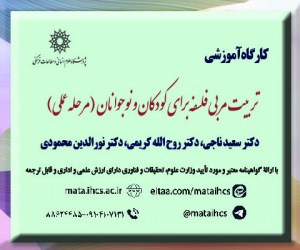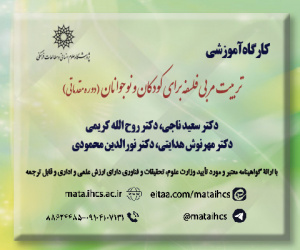طلاق عاطفی و طرحواره های هیجانی در زوجین دارای تجربه طلاق عاطفی: نقش واسطه ای هوش هیجانی (مقاله علمی وزارت علوم)
درجه علمی: نشریه علمی (وزارت علوم)
آرشیو
چکیده
هدف: این پژوهش با هدف، طلاق عاطفی و طرحواره های هیجانی در زوجین دارای تجربه طلاق عاطفی: نقش واسطه ای هوش هیجانی انجام شد. روش پژوهش: روش این پژوهش مقطعی از نوع همبستگی است. جامعه آماری این پژوهش را کلیه زنان متأهل مراجعه کننده به کلینیک های مشاوره منطقه 1 شهر تهران با حیطه مشاوره ی زوج درمانی در سال 1400 تشکیل دادند، که از میان آنها، تعداد 220 نفر با روش نمونه گیری در دسترس انتخاب شدند. در این پژوهش از ابزارهای طلاق عاطفی (گاتمن، 1999)، طرحواره های هیجانی (لیهی، 2002) و هوش هیجانی (بار-آن، 1980) استفاده شد که همگی از اعتبار و پایایی قابل قبولی برخوردار بودند. به منظور تجزیه وتحلیل داده ها از نرم افزار SPSS-V22 و Amos-V22 استفاده گردید. همچنین به منظور پاسخگویی به فرضیه های پژوهش از مدل یابی معادلات ساختاری استفاده شد. یافته ها: نتایچ پژوهش نشان داد که مدل از برازش مناسبی برخوردار است. نتایج نشان داد طرح واره های هیجانی بر طلاق عاطفی در زوجین دارای تجریه طلاق عاطفی مراجعه کننده به مرکز روان-شناسی تهران تأثیر مستقیم ندارد. نتیجه گیری: نتایج نشان داد طرح واره های هیجانی بر طلاق عاطفی با میانجیگری هوش هیجانی در زوجین دارای تجریه طلاق عاطفی مراجعه کننده به مرکز روان شناسی تهران تأثیر غیرمستقیم ندارد.Emotional Divorce and Emotional Schemas in Couples with Emotional Divorce Experience: The Mediating Role of Emotional Intelligence
This study was conducted with the aim of emotional divorce and emotional schemas in couples with emotional divorce experience: the mediating role of emotional intelligence. The research method is cross-sectional correlation. The statistical population of this study consisted of all married women referring to counseling clinics in region 1 of Tehran with the field of couple therapy counseling in 1400, from which 220 people were selected by available sampling method. In this study, the tools of emotional divorce (Guttman, 1999), emotional schemas (Leahy, 2002) and emotional intelligence (Bar-On, 1980) were used, all of which had acceptable validity and reliability. SPSS-V22 and Amos-V22 software were used to analyze the data. Structural equation modeling was also used to answer the research hypotheses. Findings showed that the model has a good fit. The results showed that emotional schemas did not have a direct effect on emotional divorce in couples with emotional divorce experience referred to Tehran Psychological Center. The results also showed that emotional schemas do not have an indirect effect on emotional divorce mediated by emotional intelligence in couples with emotional divorce experience referred to Tehran Psychological Center.



